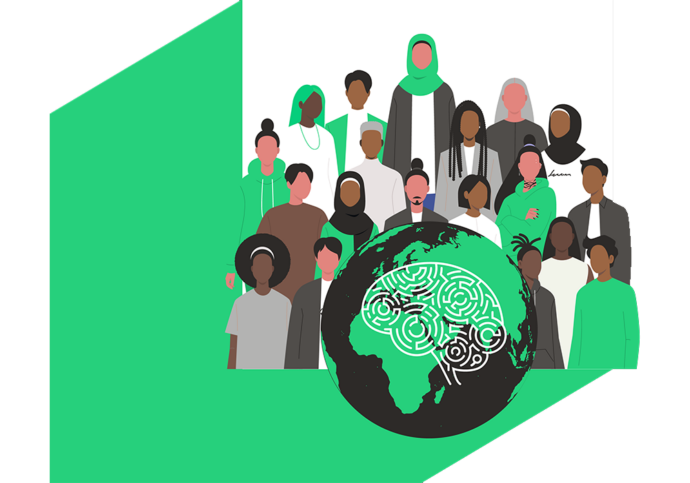In the diverse tapestry of the United Kingdom, workplace inclusivity stands as a cornerstone of modern professional environments. The UK, with its rich cultural heritage and multifaceted society, places significant emphasis on fostering an inclusive workplace culture that celebrates diversity in all its forms. Embracing inclusivity isn’t merely a trend but a fundamental aspect of creating thriving, innovative, and progressive workspaces across the nation.
The Diversity Landscape in the UK Workplace
The tapestry of diversity woven into the UK’s workforce represents a vibrant mosaic, embodying a multitude of cultural nuances, perspectives, and talents. Embracing this rich diversity isn’t merely a checkbox to mark for compliance but an intentional and strategic approach that unlocks a myriad of benefits for organizations navigating today’s complex professional landscape.
At the core of a diverse workforce lies an unparalleled advantage—an environment primed for innovation, creativity, and dynamic problem-solving. By amalgamating individuals from diverse backgrounds, the workplace becomes a melting pot of ideas, experiences, and viewpoints. This amalgamation ignites creativity, fostering an atmosphere where novel solutions to challenges emerge from the amalgamation of varied perspectives.
Promoting Diversity and Inclusion Initiatives

The commitment to diversity and inclusion within UK organizations extends far beyond token gestures or superficial practices—it’s a multifaceted dedication ingrained within the very DNA of workplace culture. These organizations actively cultivate an environment where diversity isn’t merely acknowledged but cherished, where inclusion isn’t an afterthought but a fundamental principle shaping every aspect of their operations.
At the forefront of their initiatives lies a robust framework encompassing multifaceted strategies to promote diversity and inclusion. Comprehensive diversity training programs stand as pillars in these initiatives, designed not just to educate employees but to cultivate a deep understanding of diverse perspectives, unconscious biases, and the importance of inclusive behavior. These programs go beyond surface-level awareness, fostering a culture of empathy, respect, and appreciation for differences among team members.
Challenges and Opportunities
Amidst the strides towards fostering an inclusive workplace, the journey is not devoid of hurdles. Challenges persist, casting shadows on the path towards achieving true workplace inclusivity in the UK. These hurdles, though formidable, offer opportunities for introspection, growth, and transformation within organizations committed to cultivating a culture that celebrates diversity in its truest essence.
One of the prominent obstacles on the road to inclusivity is unconscious bias. These biases, stemming from ingrained societal stereotypes or prejudices, can inadvertently influence decision-making processes within the workplace. Unchecked biases may impact hiring, promotion, and resource allocation, hindering the establishment of a level playing field for all employees. Overcoming unconscious biases demands introspection, awareness, and deliberate efforts to implement strategies that mitigate bias in decision-making.
The Business Case for Inclusivity
Beyond social responsibility, there’s a compelling business case for fostering diversity and inclusivity. Studies consistently demonstrate that diverse teams are more innovative, make better decisions, and yield better financial results. Inclusive workplaces attract top talent, enhance employee engagement and retention, and resonate positively with customers and clients who value diverse representation.
Building Inclusive Leadership

Leadership plays a crucial role in driving inclusivity. In the UK, forward-thinking leaders are champions of diversity, fostering an environment where diverse voices are heard and valued. These leaders advocate for inclusivity, create opportunities for underrepresented groups, and establish a culture that encourages open dialogue and collaboration among all employees.
Creating a Supportive Environment
Inclusivity goes beyond mere representation; it’s about creating a supportive environment where every individual feels a sense of belonging. Providing equal opportunities for growth and development, offering mentorship programs, and ensuring fair treatment for all employees are integral components of an inclusive workplace.
Embracing Intersectionality
Understanding intersectionality—the interconnectedness of various social identities—is crucial in fostering true inclusivity. Acknowledging the complexities of individuals’ identities helps organizations create tailored strategies that address the diverse needs and experiences of their workforce.
Skilled Worker Visa and Diversity Enrichment in the UK Workforce

The UK Skilled Worker Visa program plays a pivotal role in enhancing workplace diversity and fostering inclusivity within the UK’s professional landscape. This visa category enables UK employers to recruit skilled workers from abroad, contributing to a more diverse and globally inclusive workforce.
Employers in the UK leverage the Skilled Worker Visa program to attract individuals with specialized skills, expertise, and talents that may be scarce in the local labor market. By embracing this visa category, organizations open pathways for individuals from diverse backgrounds and nationalities to contribute their skills and experiences to the UK workforce.
The Skilled Worker Visa facilitates the infusion of fresh perspectives, innovative ideas, and varied cultural experiences into UK workplaces. This enriches the diversity tapestry within organizations, nurturing an environment that celebrates differences, encourages collaboration, and fosters a culture of learning from diverse viewpoints.
Furthermore, this visa program aligns with the UK’s commitment to creating an inclusive workforce by ensuring that employment opportunities are accessible to individuals based on their skills, qualifications, and expertise rather than their country of origin. This approach enhances workplace diversity by providing opportunities for individuals from different cultural, educational, and professional backgrounds to contribute to the UK’s economic growth and innovation.
Employers, recognizing the benefits of a diverse workforce, actively leverage the Skilled Worker Visa program to recruit top talent globally. They understand that diverse teams, comprising individuals with varied skills and experiences, are better equipped to solve complex challenges, drive innovation, and deliver optimal results.
In essence, the Skilled Worker Visa program catalyzes fostering workplace diversity and inclusivity in the UK. By attracting skilled individuals from diverse backgrounds, this visa category contributes significantly to creating vibrant, dynamic, and forward-thinking work environments that thrive on the collective strengths of a diverse workforce. The program not only benefits employers seeking specialized talent but also amplifies the richness of perspectives and experiences within UK workplaces, laying the groundwork for continued growth, innovation, and success on the global stage.

Future Directions
As the UK continues to evolve, the journey towards workplace inclusivity is ongoing. Embracing technological advancements, adapting to changing societal norms, and committing to continuous improvement are key aspects that will drive the future of inclusivity in UK workplaces. By prioritizing diversity, fostering inclusivity, and embracing the richness of differences, organizations in the UK can pave the way for a more equitable, innovative, and successful future in the global landscape of work.















